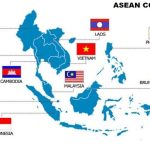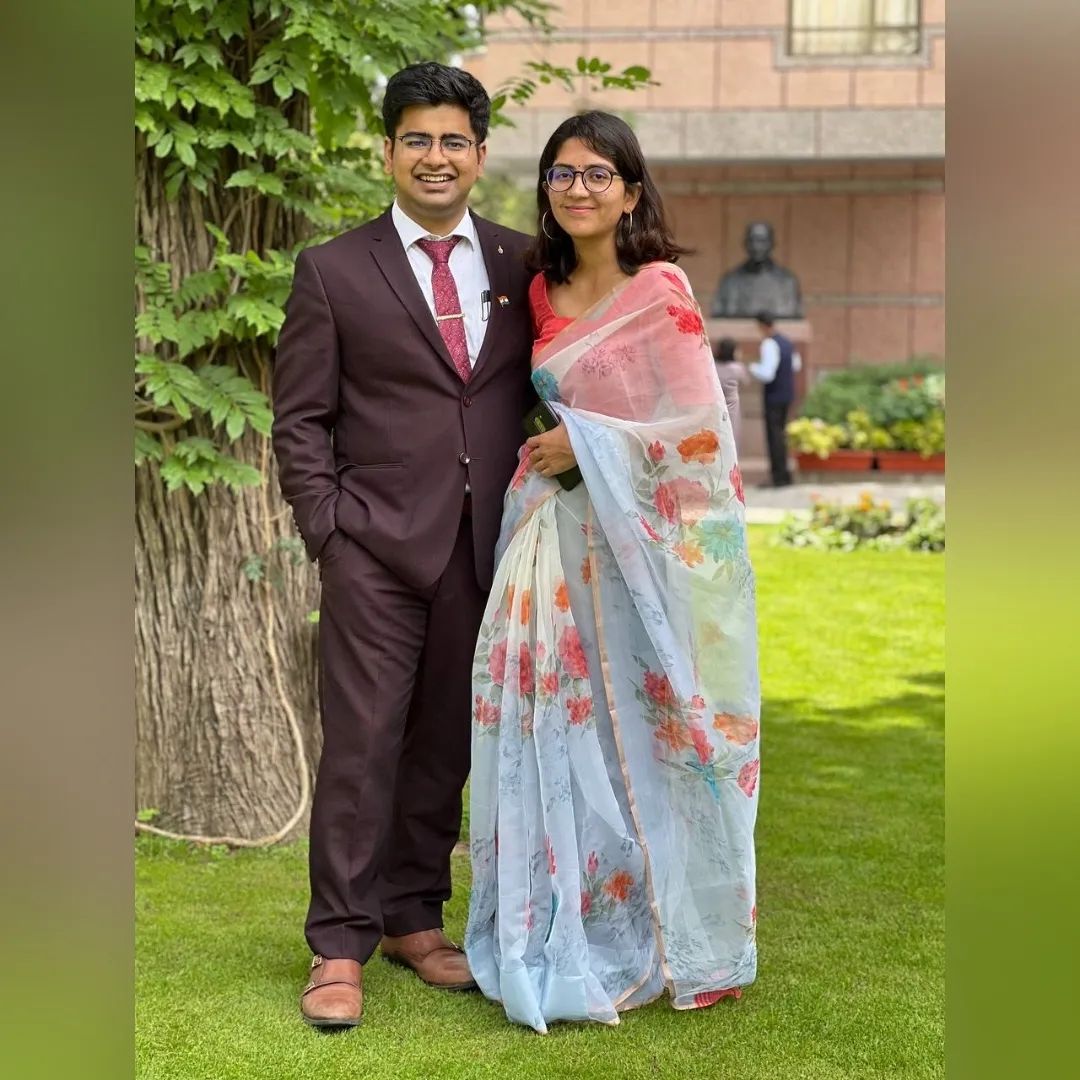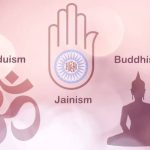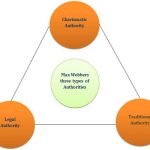Table of Contents
- 1 World Trade Organisation
- 2 Philosophy behind WTO
- 3 Need for est WTO in place of GATT
- 4 Aims & Objectives of WTO
- 5 Principles Governing WTO Agreements (SP-NOT)
- 6 Evolution of WTO
- 7 North-South Debate in WTO
- 8 Importance of Agriculture for Developing countries
- 9 Issues related to Market access-
- 10 Achievements of WTO
- 11 Current issues in WTO—
- 12 Way forward for WTO
- 13 Conclusion
World Trade Organisation
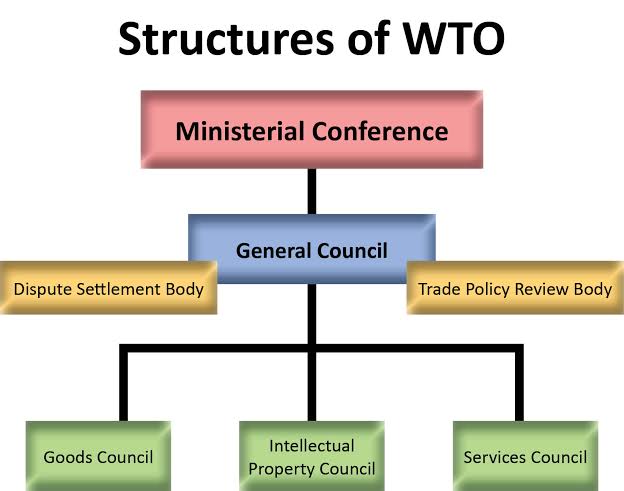
Introduction
- WTO along with Brettonwoods insts forms the “Architectonic edifice” of LIEO.
- It Deals with rules of trade b/w nations—to ensure smooth, predictable & free flow of trade
- Est in 1995, as a successor of GATT.
Philosophy behind WTO
- Embodiment of Neo-liberalism (Washington Consensus) to est LIEO— Aims at Promotion of Free trade / Liberalisation of world trade for-
- Promoting peace & prosperity–>Interdependences–> Richard Cobden, Thomas Friedman’s Golden Archer theory
- Immanuel kant said “Universal hospitality” is essential for “Perpetual peace” in IP
- Development–> As world trade is based on Ricardo’s theory of “Comparitive advantage”, so –More profits / Win-win situation for all.
Need for est WTO in place of GATT
- GATT dealt only with trade in Non-agri goods, but by 1980’s Agri goods became imp component of external trade.
- Trade in services increased exponentially + new areas of trade like IPRs emerged
- After C.W– Due to “SAP” & “Shock therepy”– No. of countries participating in external trade became too large.
- After C.W– American Hegemony– so WTO est as a component of “Hegemonic stability theory”
Thus, an Inst framework needed to comprehensive Governance of global trade.
- So, Uruguay Round of talks (1986-94) concluded with Marakkash agreement based on “Dunkel-Draft”– led to est of WTO.
Aims & Objectives of WTO
- To est Rule of law in Intl trade– Est Rule based global trading system
- Ensure free & fair trade + maintain T/P & Predictibility
- Peaceful settlement of Intl trade disputes
- Development of Devg countries
Principles Governing WTO Agreements (SP-NOT)
- Non Discrimination–> MFN status & National treatment
- Openness– Reducing Tarrif & Non Tarrif barriers.
- T/P & Predictibility
- Special & Differential treatment
Evolution of WTO
- 1st Ministerial (1996- Singapore)– Resulted in adoption of “Singapore issues” (proposed by Devd countries)– opposed by Devg
- Trade facilitation
- Govt procurement
- Trade & investment
- Competition policy
- 3rd Ministerial (1999- Seattle)– By this time Devg became disillusioned, as WTO policies resulted into–
- Disproportionately favoured Devd > Devg–> Devg didn’t get expected benefits + Dev of Under-dev.
- Huge Inter-state & intra-state disparities
- Devd although ↓ tarrifs but they erects many non-tarrif barriers (SPS, TBT)– so Devg lacks real market access.
- Politics of “Boxes of subsidy”–> Food insecurity
- Devg says they lack sufficient expertise to comprehend technicalities of Trade laws
Hence Global civil society protests in Seattle that WTO Meeting couln’t took place.
- 4th Ministerial (2001- Doha)– In Response of huge protests– Devd realised that WTO shd address Developmental concerns– So
- Adoption of Doha Dev agenda— Considered as Victory of Devg + Devd accepted it to show Global solidarity against Terrorism (After 9/11)
- 9th Ministerial (2013- Bali)– Adoption of “Bali Package”–
- Agreement on Trade facilitation
- Emergence of “Peace clause”–Till permanent solution reached on Public stockholding on Food security, Devg can give any amount of subsidy for their food prog.
- 10th Ministerial (2015- Nairobi)– Resulted into “Nairobi Package”–
- Peace clause extended
- Decision to eliminate subsidies on Agri exports– Devd to comply immedietely (By 2016) & Devg given relaxed deadline (By 2018)
- Special safeguard mechanism
- 11th Ministerial (2017- Buenos Aires)– No conclusive agrrement (No Joint declaration) as– Devd proposed new agreement on e-commerce while Devg insisted on first finishing negotiations on DDA– Thus virtually peace clause extended for indefinite period.
North-South Debate in WTO
Agricultural Negotiations (AoA)- Most contested & Most politicised + it is a major issue in DDA
Negotiations r on 3 pillers–
- Market access
- Export subsidies
- Domestic support
Importance of Agriculture for Developing countries
- “In devd Agri is just a matter of commerce, but in Devg it is a way of life”
- Mainstay of their economy + major source of FOREX
- Very small size of Per capita landholding while very large in Devd, In Devg- Subsistance farming but In Devd- Commercial
- In Devg- Around 70% Pop depends on Agri & 30% is GDP share but in Devd- 4% pop & 3% GDP share
- S-E Dev, Poverty alleviation & Food security
- Deals with ↓ tarrif & Non tarrif barriers– Devg continues to maintain high tarrifs & Devd although ↓ tarrifs but they imposes Non tarrifs (SPS, TBT) & Anti dumping duties w/o T/P– so Devg not able to increase thier exports.
- Lack of consensus on 2 issues–
- Special safeguard mechanism– Lack on consensus on point at which Devg can resort to this– Devg like India r very defensive, but Devd like US says it must be used only in case of substantial import surge
- Special Product- Devg can keep some products out of liberalisation having links with rural dev, employ & livelihood-No consensus on No. of items
Issues related to Export subsidies–
Resolved under “Nairobi Package”
Issues related to Domestic supports–
- Most controversial as Devd maintains huge subsidies but many restrictions r placed on Devg– Thus WTO policies adversely impacted Agri, Food security– so Agri is stagnating, Farm suicides ↑, Malnutrition ↑
- Avg subsidies per farmer in India- $49, EU- $1068, USA- $7253
- 3 “Boxes” of subsidies– Blue, Green & Amber (Trade Distorting as they r production enhancing– so limitations imposed based on Specail & Differential treatment called as “de-minimis”– 5% of total value of agri produce for Devd & 10% for devg)
- Values of produce is computed at base price b/w 1986 & 1988
Contentions (Devg’s arguments)
- Actual amount of subsidies given by Devd > Devg
- Devg (like India) has to introduce FSA for their malnourished pop– for that Remunerative price to be given to farmers– hence their limit will be breached & other countries can impose CVD.
- Devd has played with “Boxes” & channelised their subsidies from Amber to green box but Devg lacked expertise so they could not understand technicalities of agreement.
How WTO policies impacted Food security in Devg countries?
- Exposed their farmers to fluctuations in Global market + Subsidies ↓
- Govt cannot release food even when they r getting rotten
Deceitfulness of Developed world
- They have surplus produce– so want to export their cheap food grains to Devg
- Purposefully kept subsidy bind at 1986-88 base price
- Manipulates price of Agri produce through Share market
Groups involved in Agri negotiations
- C-4 (Mali, Chad, Bukrina faso, Benin)
- G-20 (negotiating export subsidy)
- G-33 (negotiating public stockholding)
India’s proposals
- Change base price level to level that can take into A/C inflation in Food items.
- Keep public stockholding prog for food security in Green box
- End the boxes & maintain one.
But Devd countries not agreeing to this.
Negotiations on NAMA–
- Devd ↓ tarrifs but imposes Non tarrif barriers, while Devg r reluctant to ↓ tarrifs as custom duties r major source of revenue for them
- Main parties in dispute r US & China– US accuses china of Dumping & China accuses US for imposing CVD in Non T/P manner
- TFA was expected to solve this.
Debate on new issues-
- IPR
- Subsidies on fisheries
- e-commerce– opposed by Devg due to security issues + can harms MSMEs.
WTO & Developing countries
-ves
- Equal voting rights not benfitted them, as Devd uses potential bargaining tools like “Green Room Diplomacy”
- DSM is too costly– Devg cannot afford to use it, some Devg countried r even closing their offices in Geneva
- -ve impact on Food security
- Devd continues to be Protectionist
- Rules of the game r not Fair
+ves- Still WTO’s success is in favour of Devg, if they r able to maintain Solidarity
- WTO is more democratic (Equal voting rights for all + Consensus based decisions) unlike WB & IMFf which have weighted voting.
- WTO agreements r based on Principle of Special & Differential treatment
- WTO provides “Aid for trade” to Devg– Can be used in Capacity building.
- Multilateralism is in favour of Smaller Devg countries, as they cannot get better bargain in Bilateral framework
- M.L very imp for India as there r very limited chances of success of SAFTA– so only through WTO India can get favourable trade env w/o being bargained by smaller neighbours.
Achievements of WTO
- Global Facilitation of Trade—By building binding rules, reducing barriers, Resolving trade disputes, TFA
- Improved Economic Growth—Since 1995, value of world trade has nearly quadrupled
- Increased Global Value Chains
- Upliftment of Poor Countries
- Global trade rules: Decisions in the WTO are typically taken by consensus among all members and they are ratified by members’ parliaments. This leads to a more prosperous, peaceful and accountable economic world.
Current issues in WTO—
Facing make or break moment—Backlash Against Glbl, free trade & M.L (Crisis of Legitimacy)
- Faced challenges from very inception–Initial apprehensions raised by Devg but present crisis comes from Devd world especially USA—
- US approach emerges from China’s unfair trade practices–China’s State Capitalism
- US senator—Josh Hawley—suggested US to abandon WTO—As it led to job loss in US
- Major controversy is lack of agreed definition Devd & Devg country.
- Sharp division in interests (Diff Negotiating positions) of Global north & south has marginalised WTO.
- DDA is at the core of divide as it is favourable for Devg but Devd r working to jettison it in favour of a new agenda– e-commerce, investment facilitation, MSMEs
- Lack of agreement on public stockholding & subsidy regime
- West wants inclusion of issues like IPR, e-commerce, , investment facilitation, labour laws etc—staunchly opposed by Devg world
- Great power rivalries– US & China
- Side stepping WTO—Bilateral, regional & mega-regional deals—TPP, RCEP, AU-FTA.
- Recent G20 Osaka summit witnessed Devd countries supporting Japan’s attempt at legitimizing informal plurilateral negotiation on digital trade.
- Growing protectionism—Trade war—WTO remained a moot spectatore—? WTO’s credibility.
- Institutional Issues—AB is dysfunctional +DSM in the state of deadlock.
- Limited success in major issues—Food security, Global trade imbalances + since 2001 Doha talks- no substantial outcomes
- COVID-19 Impact & its global economic fallout
Why US is strangulating Appellate Body by Starving funds + blocking App process to AB?
- China’s growing assertiveness is reason for U.S.’s hard posturing–> China has largely benefited from Rules-based WTO & now it is distorting the rules
- US criticises it for “overreaching” or judicial activism.
- Its smooth functioning posed hurdles to US’ Protectionist & unilateral measures
While US is currently Most noticeable disruptor, authoritarian countries like China r also actively contesting underpinnings of M.L order.
Way forward for WTO
G20 Riyadh Summit recog “Riyadh initiative on future of WTO” for reforming M.L trading system–
- Launch a new ‘SDG round of trade negotiations’—
- Has potential to get full consensus of all WTO members
- It will provide much-needed endorsement for free trade
- It will be successful in co-opting Devg & LDCs who r disillusioned with abandonment of DDA
- With anti-globalisation forces on rise, it will demonstrate link b/w trade & Dev that will help WTO members in achieving SDGs
- Will help WTO achieve Marrakesh objectives— Raising Stds of living, ensuring full employment, Economic dev of all.
- It could also help resuscitate a moribund WTO.
- Appellate body reform– As it is the lynchpin of DSM, which is the ‘jewel’ in WTO’s crown.
- Recalibrating Special & Differential treatments– Devg & Devd status shd be not based on ‘self-election’ but on objective criteria. ex- link it with MPI
- Restoring WTO dispute settlement mechanism + Stitch fair rules in larger interest of all nations & thwart unfair trade practices of a few.
- Need for Collaboration in Post COVID world—Ensuring Supply Chains are robust
- In 2019 , India proposed a concept paper asking for overhauling WTO with “Development centricism” + India cautioned that WTO reforms should be premised on Principles of inclusivity, equity and not to widen the existing asymmetries.
Conclusion
India should actively lead the voice of 3rd world in WTO to est its leadership + work with mid-size trading economies with a strong interest in preserving openness
FUTURE PROSPECTS FOR WTO IN WAKE OF CHANGE IN US ADM
- Against Trump’s “America first”, Biden’s Affirmed commitment to M.L, free & fair trade by rejoining Paris Accord.– Hence Chances of revival of M.L & WTO, as it is imp for US Hegemony
- But there r compelling Geo-political imperitives like US-China rivalry (Thucydides Trap) + Discontent within American polity towards globalisation + huge uncertainities created by Covid-19– so no gurantee.
- MARK LINSCOTT–Although there may not be radical departure altogether from Trump adm, but Biden Adm will take more constructive stance on M.L issues in WTO & more likely to pursue remedies in WTO.
Doha Development Agenda
- Doha round was launched at MC4
- Known as DDA as it accorded priority to Dev over Trade + it sought to address Devg’s concerns in 3 areas– Domestic support, Market access, export subsidies
- DDA decided to be adopted in framework of “Single Undertaking”– Nothing is accepted till everything is accepted.
Mandate for the negotiations–
- Agriculture–More market access, eliminate export subsidies, ↓ distorting subsidies support.
- Dealing with Dev concerns of Devg– Food security & rural dev.
- NAMA– ↓ or eliminate tariffs & non-tariff barriers, particularily on products of export interest to Devg countries.
- Services– Improve market access & strengthen the rules.
- Trade facilitation
- Improve DSM .
2015 Ministerial Conference Nairobi, Kenya (MC10) focused on a selected number of issues that are part of DDA– Agreement reached on following DDA issues:
- Stopping use of subsidies unfairly supporting Agri exports
- Ensuring that food aid for Devg countries is given in a way which does not distort local markets
- Simplify conditions for exporters in Devg + Increase opp for their businesses from the poorest countries to provide services in the WTO’s 164 member countries
Why DDA failed so far
- Agri has always been bugbear in WTO negotiations
- Devd never interested, they actually wants to collapse of Doha talks
- Global south is unable to put a joint front against global north & get swayed by individual dealings with US & EU—Need for global south to come together, rather than dealing through fragmented regional trade blocks.






